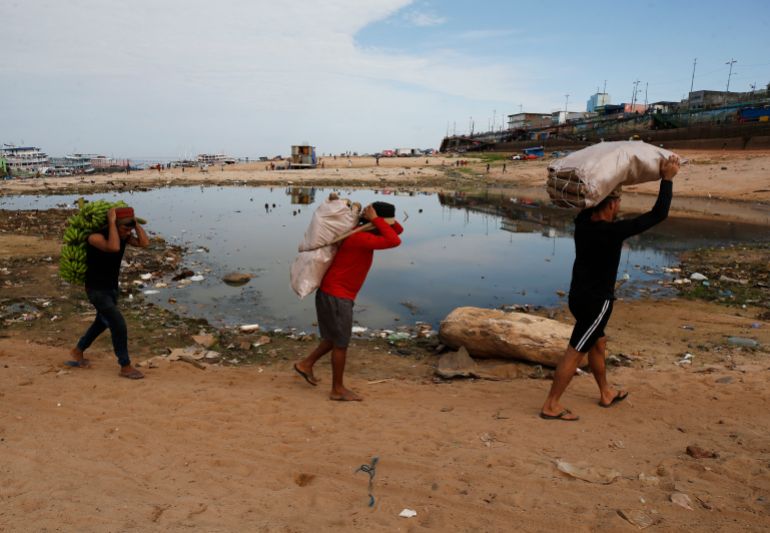In a letter to Brazil’s COP30 climate conference, dozens of environmental and human rights organizations and activists have urged the UN to place justice and reparations at the forefront of discussions.
The signatories, which include Brazil’s Instituto Luiz Gama and the Caribbean Pan African Network (CPAN), pleaded with the meeting’s organisers on Friday to “centre the voices of Africans, people of African descent, and Indigenous Peoples” from November 10 to November 21.
Recommended Stories
list of 4 itemsend of list
The activists’ letter calls for justice for the nations and people of the world that have historically contributed the least to climate change but are frequently among the hardest hit by it.
They urged Brazil to “highlight” how climate justice is related to reparations “for the histories and legacies of colonialism and enslavement,” noting that Brazil has “one of the largest populations of indigenous peoples in the world” and that it is the host country of the meeting along with other organisers.
The International Court of Justice (ICJ) and the Inter-American Court of Human Rights’ recent advisory opinions on climate justice “highlighted the vulnerabilities of Indigenous and Afro-descendant communities,” according to the letter.
Due to their greater historical responsibility for emissions, the ICJ argued that industrialized countries are legally obligated to lead the fight against climate change.
In a 2015 agreement reached at COP talks in Paris, rich nations pledged to assist developing nations in resolving the growing climate crisis, but commitments lag significantly behind what developing nations claim is needed to cover damage and loss brought on by increasingly extreme weather.
At the COP29 in Baku, Azerbaijan last year, participants in talks agreed to set a target of $300 billion in loss and damage funding to assist developing nations in adjusting to climate change.
That figure increased from the previous $100 billion pledge from wealthy nations, but it was still $200 billion less than the $ 134 billion COP meeting’s demand of 134 developing nations.
As more and more nations around the world continue to experience increasingly severe weather events, this is the latest example of reparations.
Pakistan, one of the developing nations grappling with climate change, is facing additional flooding this year after devastating floods that cost $ 14. 8 billion in damage and $ 15.2 billion in economic losses in 2022. According to the Climate Rate Index report, they pushed about 9 million people into poverty.
Recent price increases for Brazilian coffee and Ghanaian cocoa have also been linked to climate change, according to recent research from European organizations and the European Central Bank.
The Global Afro-Descendant Climate Collaboration for Climate Justice, Resilient 40, the Emancipation Support Committee of Trinidad and Tobago, and the HBCU Green Fund in the United States are also included in the letter’s address to COP organizers.
The letter, which will be sent to Brazil’s government and the UN the following week, has also been supported by Colombia’s environment minister.
The demand for reparations for colonial exploitation and slavery has grown in popularity around the world, but critics claim that modern governments and institutions should not compensate for historical wrongs or make other reparations.
Source: Aljazeera

Leave a Reply